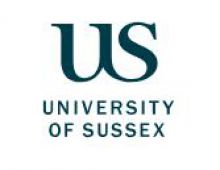We need to talk about governance. It isn’t as exciting as vice-chancellors’ pay. It won’t set the news agenda like our revelations that Bath Spa University paid out more than £800,000 to its retiring v-c, while the University of Sussex handed a quarter of a million to its departing leader “in lieu of notice”.
But governance is at the root of the issue that has bubbled away, and regularly boiled over, for much of the year.
For readers of Times Higher Education, the sudden interest in v-c pay may seem overdue. We have reported on the inexorable rise of executive pay for years, and calls for new levels of scrutiny, such as Lord Adonis’ idea of publishing pay ratios, aren’t as fresh as some seem to think (since you ask, the remuneration enjoyed by v-cs is often seven or eight, and in some cases 10 or 11, times average pay).
Over the years that THE has covered this topic, few outside higher education took much notice, beyond the odd call for restraint in the annual grant letter.
But that has now changed, and the old explanations about competing in a global marketplace for talent are falling as flat with the public as they did with rank-and-file university staff.
Put bluntly, the handling of this crisis has been tone-deaf in the context of tuition fees, student debt, staff salary freezes, campus redundancies, pension cuts, zero-hours contracts and outsourcing.
Although the data emerging from the current sets of university accounts pre-date the furore of this summer, which could explain some of the more eye-watering pay rises and pay-offs, it is clear that the salary escalator enjoyed by those at the top cannot continue.
What is at stake? The moral authority of universities and their leaders, at a time when the country desperately needs them to have strong and influential voices.
Academia as a whole has been boxed into a corner by the pay of those at the top; it feeds the idea of universities as elite enclaves, and deepens the loss of trust and respect for expertise and public intellectuals.
This is not a price worth paying.
As Shearer West, vice-chancellor of the University of Nottingham, said in her inaugural lecture last week, the cumulative effect of the negative headlines this year has left universities looking as though they are “failing in every possible way”.
Others have pointed out that high-paid executives are a predictable product of a marketised sector. But, on the whole, universities are not led by people whose primary qualification for the job is that they are competent managers who can oversee expansion and deliver shareholder value.
Much of the media focus has been on individuals who have accepted huge sums, but the answer isn’t to impose some arbitrary cap, or to wilfully underestimate the difficulty of running a university.
The crucial issue is governance. This week we report on the views of one former vice-chancellor, Peter Knight, who identifies performance-related pay as a particular problem, breaking cover to say that he would have worked just as hard without the supposed incentive of bonus payments.
Specific governance failures have also been identified at the University of Bath; and it is clearly untenable for vice-chancellors to continue to sit on remuneration committees, regardless of whether they excuse themselves when their own pay is discussed.
But the issue is more fundamental than that. In many cases, university governors seem to be making decisions with little sense of what universities are and of what makes them far more precious than enterprises with a turnover of a couple of hundred million. Insiders sometimes express horror at the lack of understanding on display – questions such as “what is the QAA?” are asked.
Universities, and their governors, are right to man the barricades in defence of institutional autonomy, and to resist direct interference from the government on issues such as who gets paid what.
But they also have a duty to protect the soul of higher education. A university that loses sight of these values loses its own value – we don’t need more businesses, and as West said in her lecture, the point of a university is to serve society, not to serve itself.
In financial slang, “taking a bath” is a term for experiencing a catastrophic loss. The v-c pay crisis, epitomised by what has happened at Bath’s two universities, risks higher education doing just that.
Register to continue
Why register?
- Registration is free and only takes a moment
- Once registered, you can read 3 articles a month
- Sign up for our newsletter
Subscribe
Or subscribe for unlimited access to:
- Unlimited access to news, views, insights & reviews
- Digital editions
- Digital access to THE’s university and college rankings analysis
Already registered or a current subscriber?










